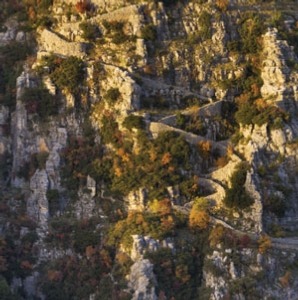Bombed, boycotted, barred and blamed: al-Jazeera’s founders had not expected the channel to face quite such a hostile reception when they launched it in November 1996.
Admittedly, some local hostility was predictable because Qatar’s Emir, Sheikh Hamad, who lent al-Jazeera its start-up capital, had bruised a few egos by ousting his own father as ruler the previous year. By paying for an all-news channel in Arabic, and giving it a name that means ‘The Peninsula’, he was also encroaching on both satellite television territory and geographical space already dominated by Saudis.
Indeed, al-Jazeera had uncanny resemblances to BBC Arabic Television, a news channel that a relative of Saudi Arabia’s ruling princes had commissioned from the BBC. Sheikh Hamad had a soft spot for the BBC channel because its journalists interviewed him after he came to power. When BBC coverage of Saudi affairs caused the BBC’s Saudi contract to come unstuck, Sheikh Hamad instructed al-Jazeera to start where BBC Arabic Television left off.
Even so, the idea of emulating the BBC did not seem particularly controversial at the time. Maybe “telling the truth is unusual in the Third World,” Mohammed Jassem al-Ali, al-Jazeera’s first managing director, told me in 1998. But, he said, it was no different from “what others do in Europe and the US.”
Al-Ali and his team reckoned without 9/11. Al-Jazeera was just approaching its fifth birthday when Arab suicide bombers struck in the US in September 2001. Up to that point the channel had made its name by reporting news that most Arab rulers wanted covered up. Political leaders had closed al-Jazeera offices in Arab capitals and warned companies to spend their advertising budgets elsewhere. Fending off such disapproval, Sheikh Hamad plugged the channel’s hefty funding gap in the name of public service broadcasting, much to the delight of many western defenders of free speech. After 9/11, however, delight turned to anger in US circles, as al-Jazeera reported the effects of US bombing raids on Afghanistan and screened clips of video messages from Osama Bin Laden.
CNN’s pre-9/11 decision to get out of Kabul had left al-Jazeera with unique access to news footage in Afghanistan. This was a mixed blessing. Its exclusives brought global recognition for the brand but unforeseen risks to al-Jazeera staff. A cameraman, Sami al-Hajj, was seized on the Pakistan border and flown to the US base at Guantanamo, where he remains as the only known journalist imprisoned in the camp, five years later. Taysir Allouni, accorded an interview with Bin Laden at a secret location, was later jailed in Spain on charges of helping terrorists. A long investigative piece by the Financial Times’s Madrid correspondent in July 2006, after Allouni’s appeal was overturned, quoted a British lawyer saying that a jury trial would “surely” have led to his acquittal.
Still more unsettling for journalists everywhere was the US bombing of al-Jazeera’s (empty) office in Kabul in November 2001. This event, reminiscent of NATO’s lethal bombing of Serbian radio in 1999 and Israeli shelling of Palestinian radio in 2000, was not a one-off. In April 2003, US troops invading Iraq shelled al-Jazeera’s office in Baghdad, killing the channel’s correspondent Tareq Ayyoub and wounding a member of his crew. The subsequent mounting death toll of journalists, some working for the other big Arabic all-news channel, al-Arabiya, raised doubts about big powers’ regard for international humanitarian law agreed under the Geneva Conventions, whereby journalists are guaranteed civilian status, and therefore protection, in war zones.
As to whether al-Jazeera had been singled out as a particular target, a trail of leaked memos and politicians’ memoirs make the channel’s tenth birthday as newsworthy as its first. October 2006 saw a British judge agree with foreign secretary Margaret Beckett that two men should be tried in secret for leaking details of a conversation between George Bush and Tony Blair about bombing al-Jazeera. According to a transcript passed to the Daily Mirror, Bush had proposed to bomb the channel in April 2004, during US bombardment of Falluja in Iraq.
A few days after the judge’s ruling, a revelation from the UK’s former home secretary, David Blunkett, undermined suggestions that Bush’s proposal was a joke. Brushing aside concerns about hitting a civilian target, Blunkett told a Channel 4 Dispatches programme that he had urged Blair in March 2003 to destroy al-Jazeera’s Baghdad transmitter.
Al-Jazeera is a story that will run and run. Governments of all kinds may find it inconvenient to have news broadcast in Arabic from the viewpoints of people who actually live in the Arab world. But there are plenty of Western journalists ready to defend their al-Jazeera colleagues. Blair’s own communications chief, Alistair Campbell, went on record in September 2004 doing just that. And a US State Department official chose none other than al-Jazeera in October 2006 to declare that the US had been “arrogant and stupid” in Iraq. Soon all eyes will turn to the long-delayed English-language channel al-Jazeera International, to see if it causes as much controversy as its Arabic counterpart. If the many doubters prove correct, that will be a story in itself.
Naomi Sakr directs the University of Westminster’s Arab Media Centre. She edited ,Arab Media and Political Renewal: Community, Legitimacy and Public Life, published by IB Tauris in February 2007

